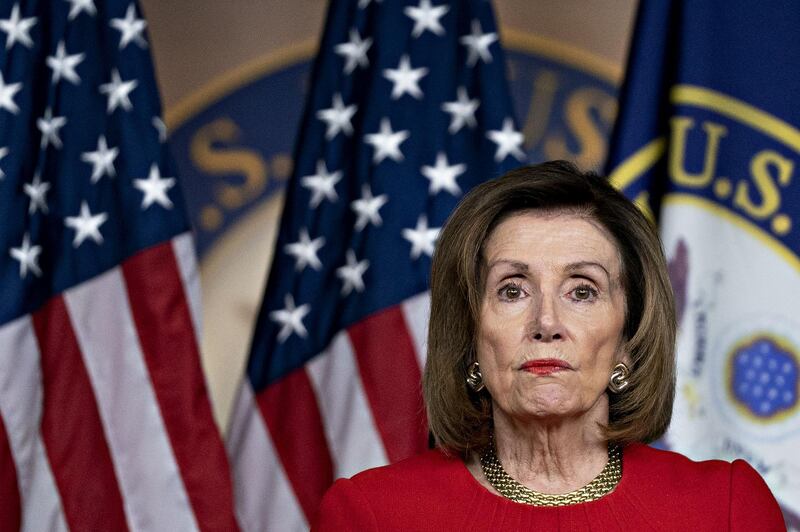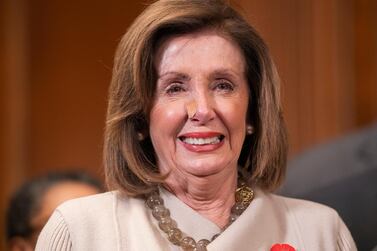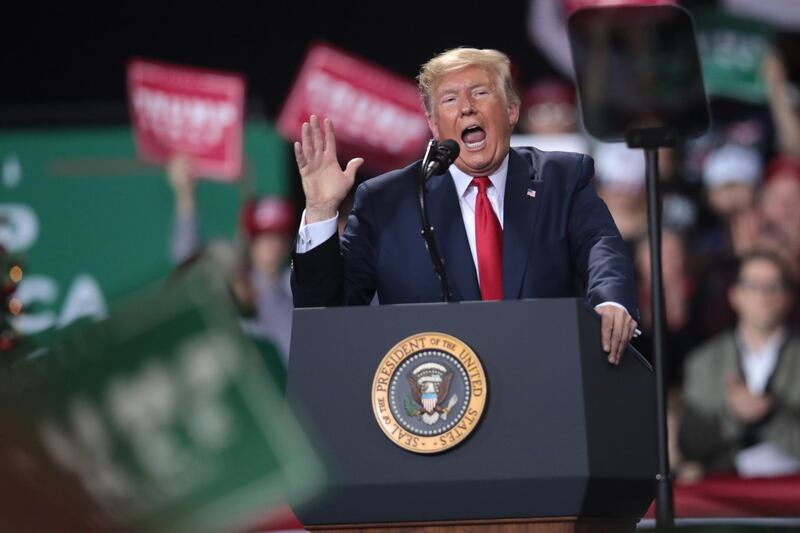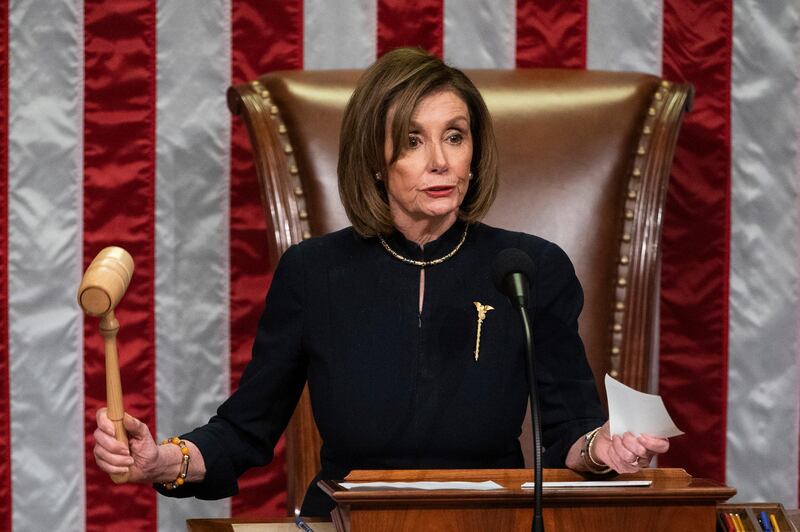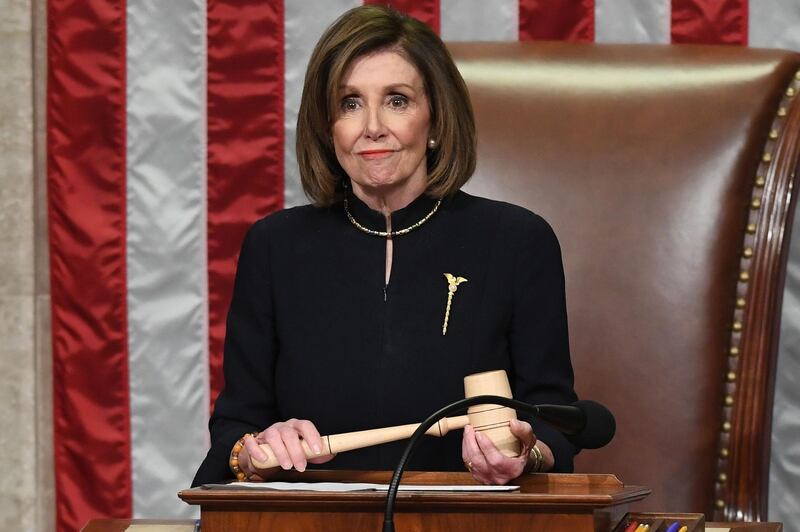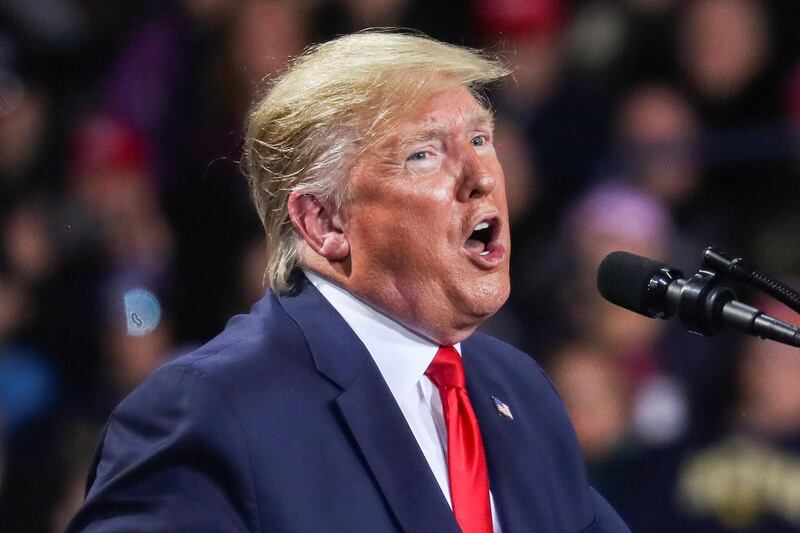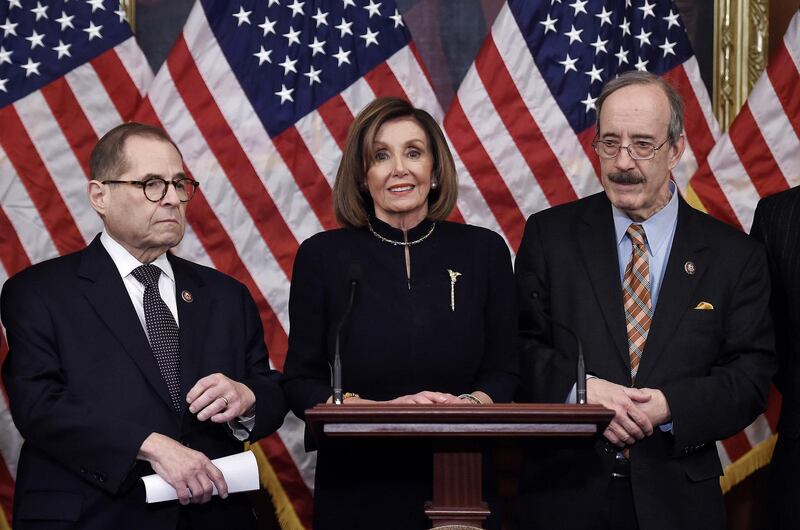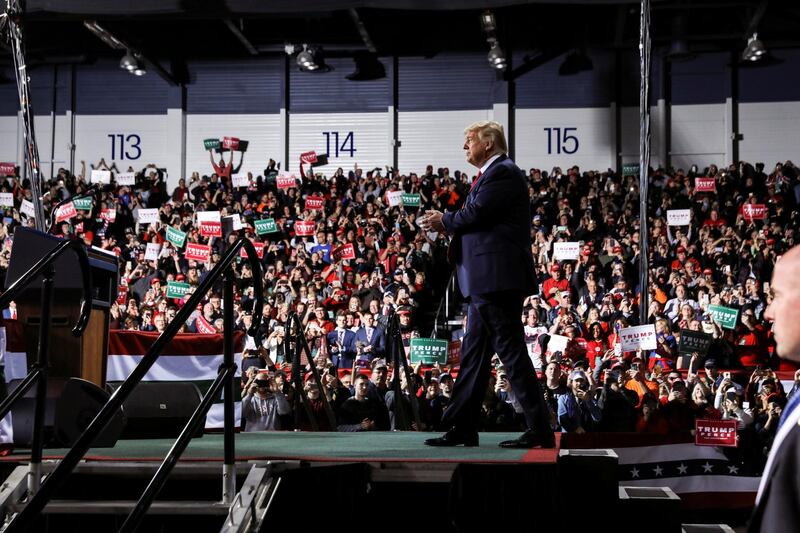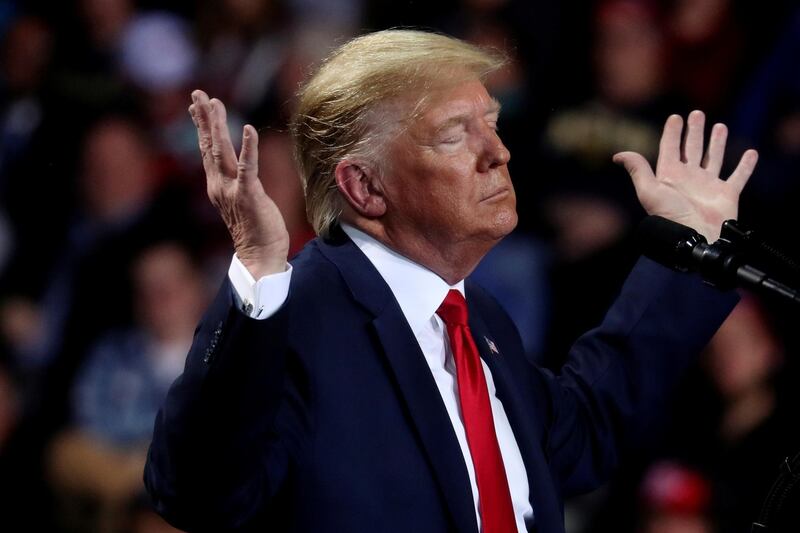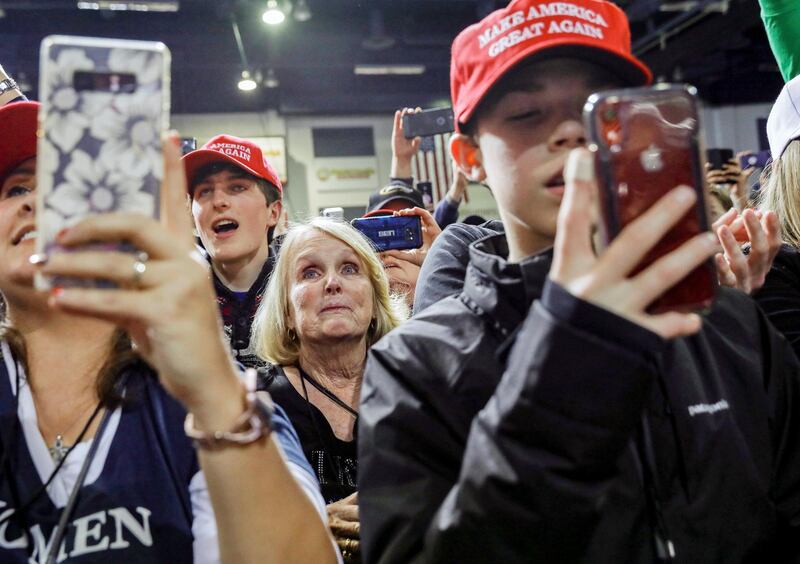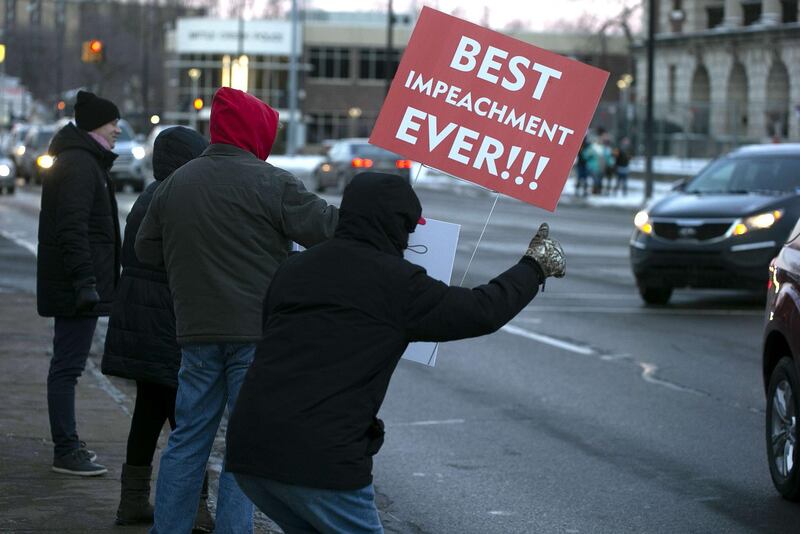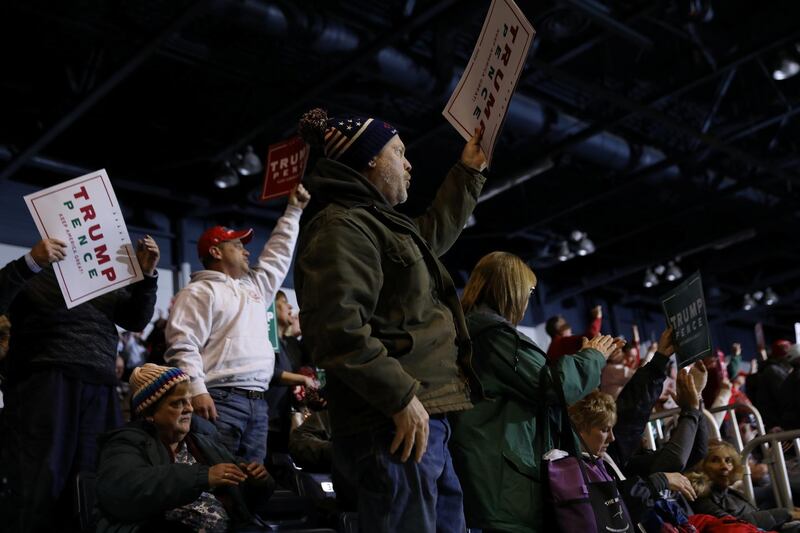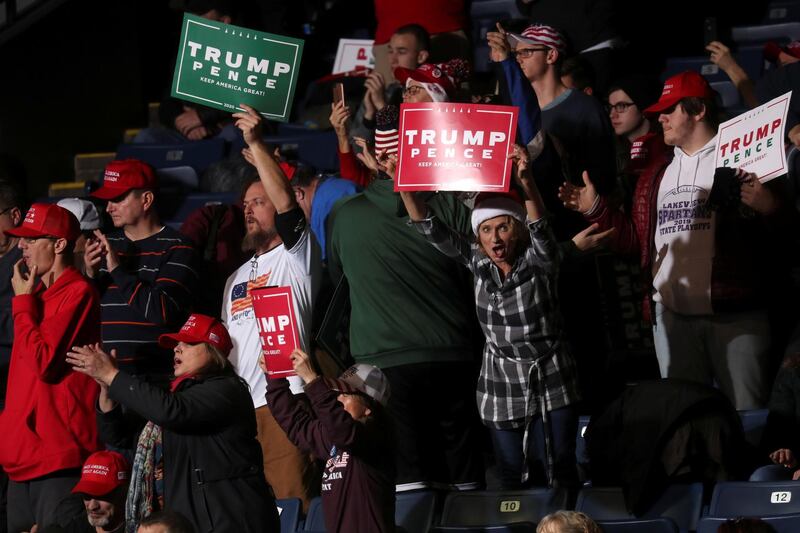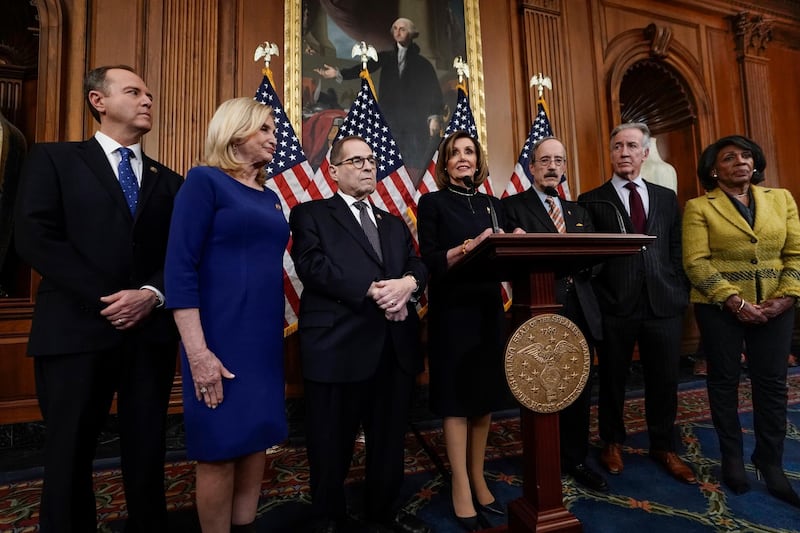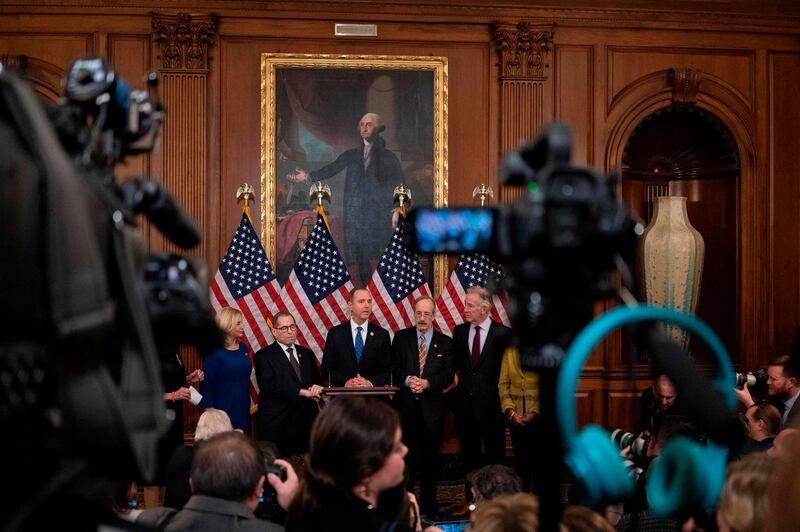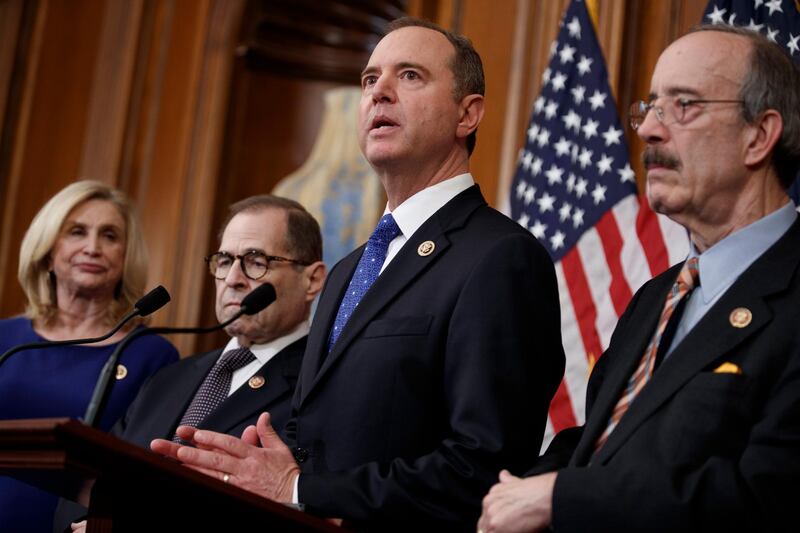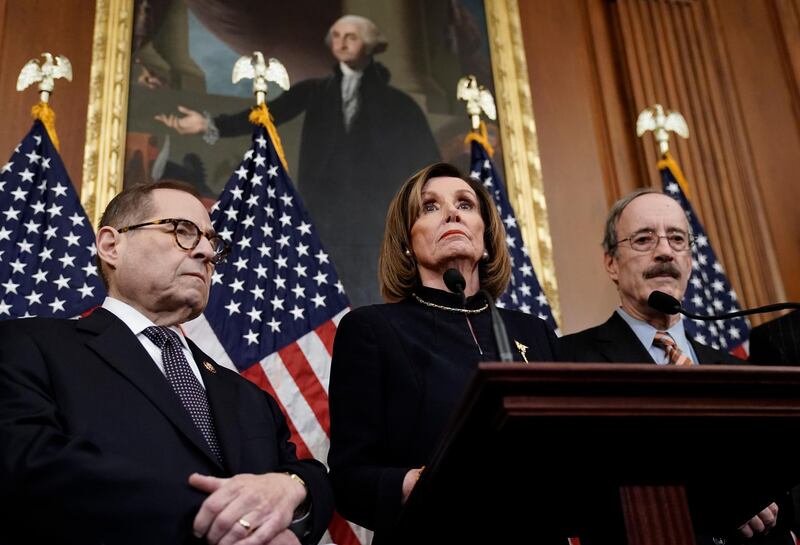It was a day of political events, a split-screen telethon with charges of misconduct on one side and a stream of invective on the other.
The impeachment of US president Donald Trump would normally have been the main course, because of its historical gravity.
But in Battle Creek, Michigan, Mr Trump made Wednesday's marathon hearings in Washington seem little more than a starter.
“The Democrats are declaring their deep hatred and disdain for the American voter,” he said.
“They've been trying to impeach me from day one. They've been trying to impeach me from before I ran.”
The constitutional impossibility of his claim did not seem to matter to those who listened.
What was served up was the shape of things to come, a dish devoured by thousands of supporters who cheered, “Four more years”, near the end of Mr Trump's worst day in office.
And therein lies the battleground. Truth in American politics is something to be contested, rather than agreed on.
In an arena of claim and counter-claim over Mr Trump's actions with Ukraine, the shadows have fallen and only the bravest would predict that the gloom would lift during the next 11 months.
“What is at risk here is the very idea of America,” said Adam Schiff, the Democratic congressman who has led an impeachment inquiry that will dominate the start of next year, although its impact on November's election is in no way certain.
America is used to long presidential campaigns – too long, most say.
Many have already given up, such is the stamina required to follow the rancour between Democrats and Republicans over Mr Trump's conduct, let alone the race to see who he will face.
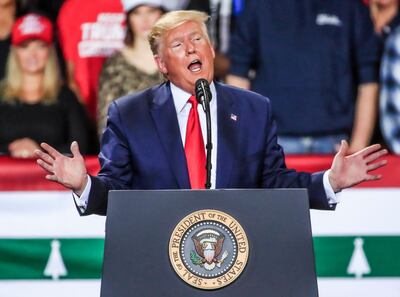
So deep are the divides that it is often too painful to keep watching. Those who do watch on take comfort in the echo chambers that reinforce their views.
Mr Trump calls his opponents' claims “fake news”, but he retweets half-truths and falsehoods on a daily basis.
Anyone who begs to differ with the president's “perfect” phone call to Ukrainian President Volodymyr Zelenskiy – be they a diplomat or a political opponent – can be dismissed as a "never-Trumper", regardless of the facts.
Such is the smokescreen that Mr Trump likes to create.
Purveyors what is classed as accepted political wisdom in Washington maintain that he will be cleared of abusing his office and of obstructing Congress.
On the current numbers in the majority Republican Senate, impeachment will fail. An election win will follow, many of the same voices say.
But four years ago, many of the same experts dismissed Mr Trump as a no-hoper. The same can be said for those who insisted a victory to Hillary Clinton, based on the numbers, was certain.
The truth is that no one knows if Mr Trump can survive. Even if impeachment fails, he will face a divided American public at the ballot box.
Those who love him, really love him. And those who loathe him want him out of office. For the moment, there appears to be no common ground.
Having just become the third US president to face impeachment, Mr Trump told his followers, many of whom spent hours lined up in the cold for one of the Kellogg Arena's 6,500 seats, that he is having a good time. He isn't.
The impeachment process has taken his propensity for public display of anger to new levels.
A six-page letter he sent to House speaker Nancy Pelosi, the Democrat who has become his biggest target, was confirmation that Mr Trump has lost control of the political winds that will blow across Capitol Hill this winter.
But he never has been very interested in Washington. Michigan, Ohio or Wisconsin will be where his electoral fate is sealed, hence his Wednesday night rally. There will be many more to come.
For all the orchestrated campaigning, however, US elections are unpredictable affairs. Mr Trump, last time around, was the biggest surprise of all.
The question that would normally hang over a president seeking re-election would be whether he has done enough to deserve a second term.
__________
Donald Trump impeached by US Congress - in pictures
But American politics left the realms of normal some time ago. Despite Mr Trump's White House being regarded as a dysfunctional, one-man zone fuelled by ego, erratic decisions and vicious personal attacks, he will only have to beat one candidate.
So what of those Democrats seeking to replace him?
A charitable opinion would be that so far, they do not seem quite up to the challenge. Unsure whether to take on Mr Trump or ignore him, it seems they themselves have become easy to ignore.
Joe Biden remains the front-runner, but his foot-in-mouth habits have hobbled him at crucial moments.
Few doubt he could handle Mr Trump one on one, so what is he waiting for? In his courtesy towards his opponents, he has failed to separate himself from the pack.
His main rivals – Elizabeth Warren, Bernie Sanders and Pete Buttigieg – insist the voters will decide on issues such as health care and the economy, above all else. Mr Trump's election win over Mrs Clinton proved otherwise.
The Democrats have six weeks to define themselves before the Iowa caucuses start the process that will select who faces Mr Trump.
It is time for them to decide what they are best at: courtesy, or doing whatever it takes to emerge a winner.
